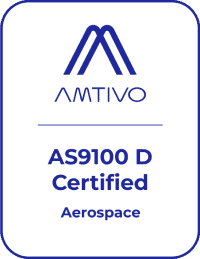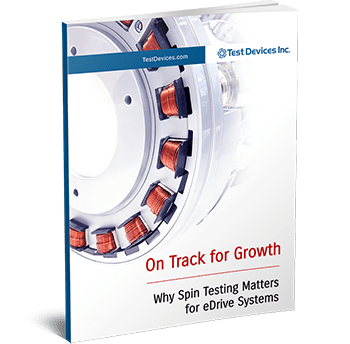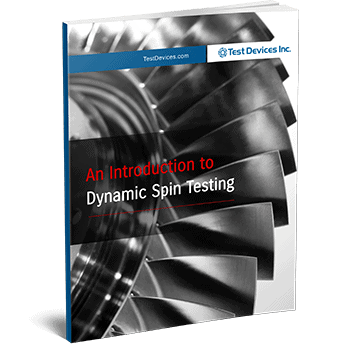Test Devices 2018 Year in Review
Leave a Comment2018 has been a banner year for Test Devices, with expansions in both our facilities and our services, allowing us to better serve our customers as a “dependable partner” and a convenient “one stop shop”. Some of our new and expanded service offerings include in-house machining, eDrive spin testing, and expanded balancing capabilities – thanks to the acquisition of a new Schenck balancing machine.
Facility Updates
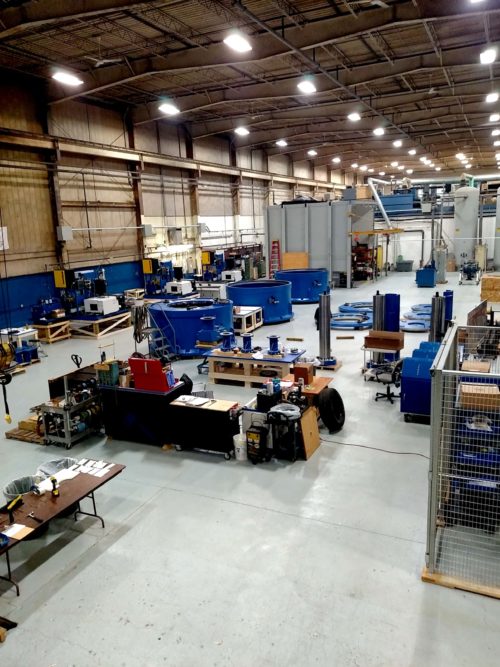
The redesigned facility layout, added floor space, and new equipment allowed us to streamline our workflow and enables us to work more efficiently than ever before. The new shipping and receiving departments are now located to the front of the building with an expanded floor space, and optimally equipped handling areas with additional cranes and staged operations. This new layout minimizes unnecessary movement, creates easier access and an unobstructed flow of materials.
We have also expanded our equipment build area and relocated it to a new section of our facility. This move allowed for a more efficient staging of equipment builds and assembly operations capable of preparing three to four machines simultaneously.
Semi-Finish Machining
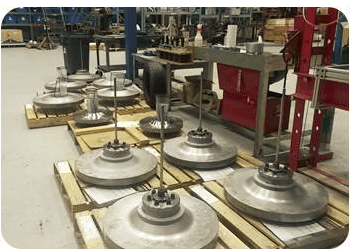
Expanding Aerospace Grade Balancing Services
In 2018, Test Devices grew our balancing capabilities by acquiring a new HM 20 Schenck Horizontal Balancing Machine to support the growing demand for these operations. This high precision, state-of-the-art machine allows TDI to service a broader range of customers with varying rotor balancing needs.
Among the primary benefits of the HM 20 is its hard-mounted bearing design, ensuring rapid changeovers between rotors, which allows Test Devices handle significantly higher volumes of balancing jobs and increase the efficiency of our operational capabilities. The HM 20’s modular design also allows it to be easily modified.
Growth in eDrive Spin Testing Systems
The successful completion of an increasing number of proof and burst tests and 130,000 LCF cycles in 2018 attests to the growing demand for eDrive testing.
We are continuing to enhance our testing and engineering offerings to support eDrive customers in 2018, including advanced rotor growth mapping, high-resolution, high-speed video imaging, expedited fatigue, LCF tests (with RT-CDS and growth mapping), heated spin tests, unbalance budgeting and rotor design engineering support.
2019 and Beyond
Test Devices Inc. continues to build our services and capabilities in 2019 and we look forward to offering better services for new and existing clients in the aerospace, automotive, and other highly technical industries. We will keep leading the industry by offering the latest services and technology.
To learn how our spin testing, balancing, and other services can help your R&D efforts, prototyping, or manufacturing operation, contact us or request a quote.
What Is Dynamic Spin Testing?
Leave a CommentJet engine and gas turbine designers must understand the dynamic behavior of bladed rotors and devise a means to manage their resonant vibrations. The dynamic behavior of bladed rotor can be very complex and could result in incipient fatigue failures. The blade vibrations can be influenced by several variables, including its geometry, manufacturing tolerances, material, attachment and damping methods to name a few. The presence of foreign object damage and erosion can also significantly affect the fatigue durability and integrity of the blades. In some cases, a small change made during repair can cause unanticipated mechanical reactions.
Designing a robust bladed rotor system requires a careful understanding of the interaction between the various factors that influence the blade dynamic behavior and its structural integrity. Turbine blade failure is a serious safety issue that can be evaluated through Dynamic Spin Testing and High Cycle Fatigue testing.
Test Devices’ Solution
Test Devices, Inc. has developed and refined a unique approach to test and study the dynamic behavior of bladed rotors. Our Dynamic Spin™ Testing allows the testing of a fully assembled bladed disk. The spin test-based method combines the effect of centrifugal load with the vibratory excitation on the blades. The ability to test the full-size parts with the CF load simulates a realistic test condition, especially at the blade attachment area where the detail of the intricate geometry and the interactions of the parts have profound impact on the efficacy of the damping as well as the parts’ life.
Test Devices has developed proprietary blade excitation techniques and the technology to accurately control the rotational speed of a test rotor, enabling us to target specific resonant frequencies at different engine orders. With these technologies, Test Devices offers a means to establish what vibratory responses can be expected and study the damage mechanisms that affect the durability and the integrity of the parts.
What Is Dynamic Spin Rig?
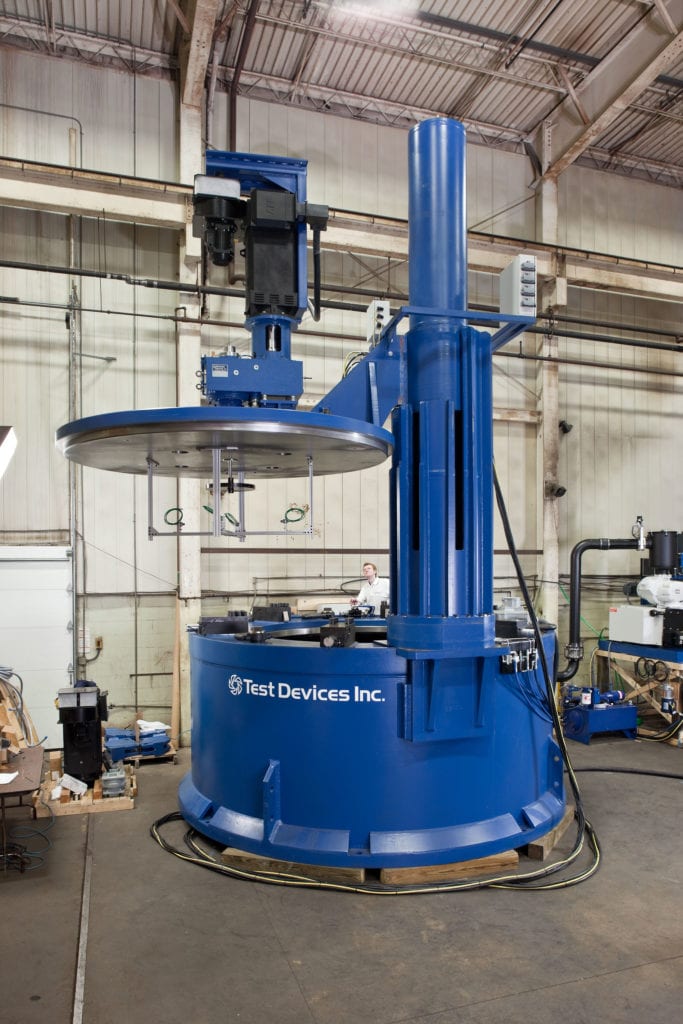
The DSR is a spin test system that can simulate the realistic operational environment of a jet engine’s bladed rotors. Fully accounting for real-world conditions including the use of actual components, blade-rotor attachment mechanisms, damper systems, centrifugal loading and the relevant dynamic excitation load at a targeted engine order.
DSR is a useful tool for jet engine designers and engineers to study, measure data and validate:
- Blade resonance frequency & dynamic responses
- Campbell diagrams and FEA models
- Blade deflection and strain
- High Cycle Fatigue (HCF) life validation
- Wear damage/the efficiency of anti-friction coatings
- The effects of mistuning
- Blade resonance changes due to a crack or repair
Trusted Team in Dynamic Spin Testing
The safety and reliability of components that go into jet engines and gas turbine rotors are important to us at Test Devices. We offer our test solutions and engineering testing expertise to tackle even the most challenging requirements. To learn more about our processes and equipment, download our eBook, An Introduction to Dynamic Spin Testing, or contact us today.

